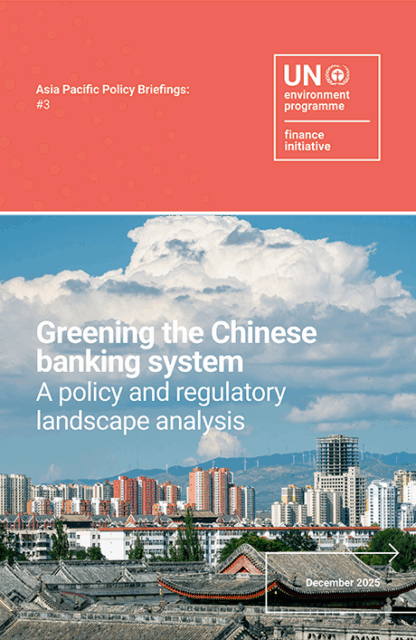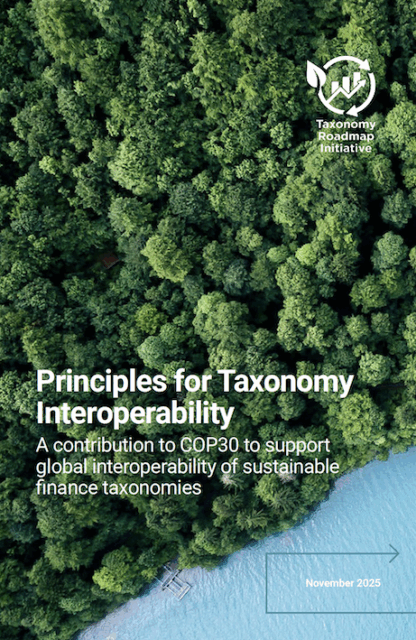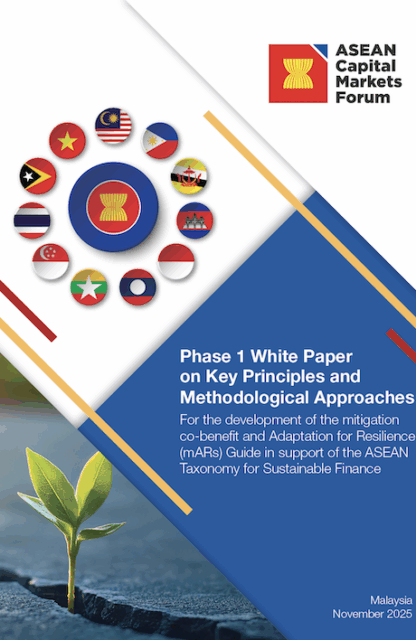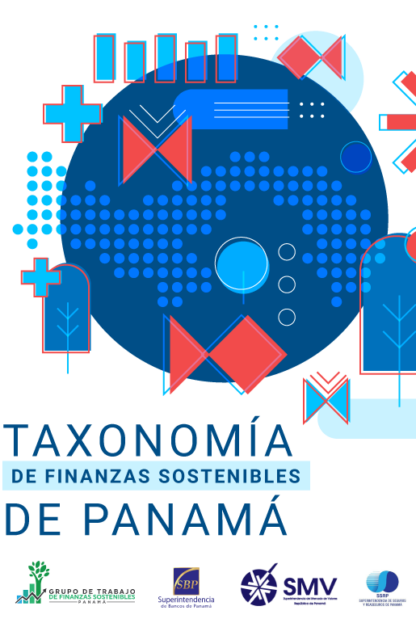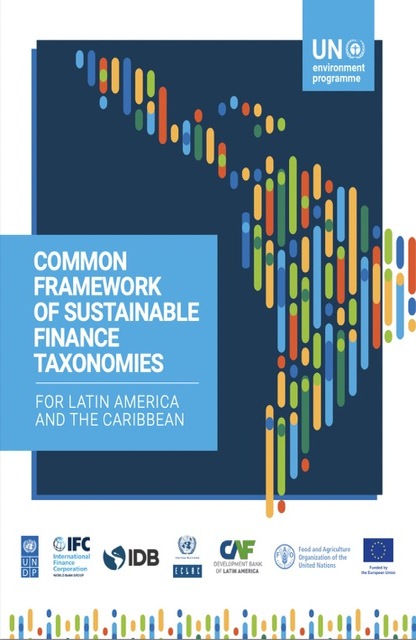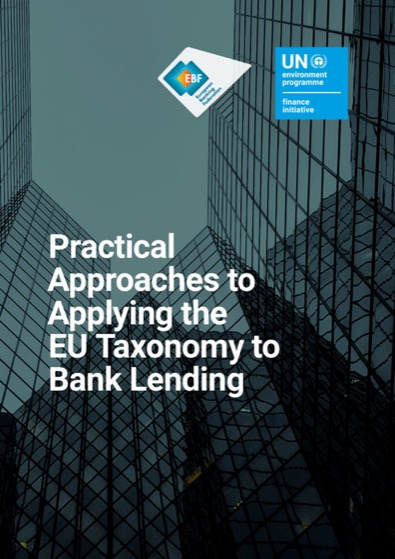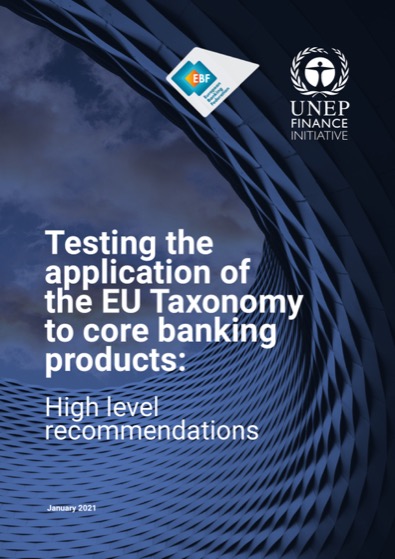Sustainable finance taxonomies, which help jurisdictions determine what counts as a “green” economic activity, play a key role in helping financial systems globally advance the net-zero transition, meet biodiversity goals, and fulfill other environmental and social objectives.
Taxonomies can help unlock capital flows for domestic and international sustainable development, including decarbonization and climate adaptation and resilience, as well as related areas like biodiversity and social inequality. Throughout the world, governments have been developing and implementing these taxonomies, with increasing attention to harmonization and interoperability among taxonomies within and across regions.
UNEP FI is working with governments and other partners to support development and interoperability of taxonomies at the national, regional, and global levels.
Support for UN Member States’ taxonomy initiatives
This new collaboration complements and enhances the ASEAN Taxonomy—the first regional transition-specific taxonomy—by developing a regional adaptation guide in identifying activities and measures critical for adapting to, and building resilience against, climate-related and natural hazards while considering mitigation co-benefits: the mitigation co-benefit and Adaptation for Resilience (mARs) Guide. The first output of the collaboration is a white paper outlining the methodology and proposed principles for the guide. Learn more about the collaboration>
This 2025 policy brief provides an overview of the major components of the ASEAN Taxonomy and considers the structures of ASEAN Member States’ national taxonomies and the alignment of each taxonomy with ASEAN Taxonomy elements such as environmental objectives and sector prioritization, using detailed matrices. Read the brief >
As an observer of the EU Platform on Sustainable Finance and the EU High-Level Expert Group on scaling up sustainable finance in low and middle-income countries, UNEP FI actively engages with the European Union’s sustainable finance policy initiatives.
From 2019 to 2022, UNEP FI worked with the European Banking Federation (EBF) to advance banks’ understanding of the EU Taxonomy together with a working group of ~25 banks, more than 10 banking associations and a selected group of observers. The outputs of this collaboration are linked below, and more information about the project can be found here.
- Phase I – Testing the application of the EU Taxonomy to core banking products: High level recommendations
This report assesses the extent to which the EU Taxonomy on Sustainable Activities could be applied to core banking products for labelling or disclosure purposes. The report is the result of a project with 26 major banks, seven banking associations and five observing organizations working together to test, pilot and assess the complexities of applying the EU Taxonomy, which is aimed mainly at investors, to core banking products. - Phase II – Practical approaches to applying the EU Taxonomy to bank lending
This report explores practical approaches for banks who wish to use the EU Taxonomy. It was developed based on discussions with 24 banks, 12 banking associations, and six observing organizations.
UNEP FI is an observer in the EU Platform on Sustainable Finance. The Platform plays a key role in enabling such cooperation by bringing together the best expertise on sustainability from the corporate and public sector, from industry as well as academia, civil society and the financial industry. Members and observers:
- Advise on the usability of the EU taxonomy and wider sustainable finance framework,
- Advise on the technical screening criteria for the EU taxonomy, and
- Monitor capital flows into sustainable investments.
Regional:
Common Framework of Sustainable Finance Taxonomies for Latin America and the Caribbean: By establishing essential guiding principles, designing objective classification systems for sectors and activities, and drawing upon the European Union and other international best practices, this UNEP FI-led Framework aims to facilitate cross-border capital flows for social and environmentally sustainable investments, and to enables private sector actors to make more informed decisions on green and social investments. Related LAC frameworks for climate and biodiversity taxonomies are currently in development. Read the Framework >
National:
Brazilian Sustainable Taxonomy: UNEP FI, with Germany’s international development agency, GIZ, has supported the Brazilian Ministry of Finance in the development of the Brazilian Sustainable Taxonomy since 2023. The first phase of the taxonomy, comprising of climate change and social objectives will be launched in late 2025, after which, a second phase of development will be developed, as well as piloting with financial institutions, with the Brazilian financial market.
Costa Rica Sustainable Finance Taxonomy: In 2024, UNEP FI launched this taxonomy in support of Costa Rica’s financial authorities. The Costa Rican Sustainable Finance Taxonomy establishes a common reference framework that assists actors in Costa Rica’s real economy and financial sector to identify opportunities that contribute to achieving the country’s environmental and social goals. Learn more >
In 2025, a new phase to test the application of the taxonomy in the finance industry, and) provide recommendations to financial regulators and supervisors to embed the taxonomy into a regulatory framework within the country, to ensure its implementation in the financial sector, has begun. UNEP FI is also involved in developing the second phase of Costa Rica’s Taxonomy, which will focus on biodiversity-related activities. This project will be conducted with the support of financial authorities such as the Ministry of Finance, Ministry of Environment and Energy, the Central Bank of Costa Rica, and other agencies.
Panama Sustainable Finance Taxonomy: UNEP FI developed this taxonomy in 2024 in support of Panama’s financial authorities. The country’s sustainable finance taxonomy focuses on environmentally sustainable activities. With funding from the Green Climate Fund Readiness Project, UNEP FI developed the country’s climate change taxonomy with financial authorities, and is now testing the application of the taxonomy in the finance industry, to provide recommendations to financial regulators and supervisors to embed the taxonomy into a regulatory framework within the country, to help ensure its implementation in the financial sector. Learn more >
Piloting the Chilean Taxonomy in the finance sector: UNEP FI is involved in a pilot project which will test the application of the Chile’s Climate Change Taxonomy in the country’s banking sector.
Taxonomy interoperability collaboration
To support interoperability among sustainable finance taxonomies, UNEP FI collaborates on multilateral platforms and initiatives, including the International Platform on Sustainable Finance and a collaboration with Climate Bonds Initiative (CBI) and Principles for Responsible Investing (PRI).
UNEP FI is working with the Principles for Responsible Investment (PRI) and Climate Bonds Initiative (CBI) to develop a joint taxonomy interoperability programme through a collaboration launched in June 2024. The collaboration aims to build consensus on taxonomy definitions and concepts among standard setters, policymakers, and taxonomy users, and to support the development of taxonomies and provide tools for implementation to help create the enabling environment for sustainable finance.
- Interoperability principles: The first output of the collaboration is a set of interoperability principles. The principles build on taxonomy development principles from the G20 SFWG. These principles are meant to assist taxonomy developers in strengthening interoperability at the development and implementation stage.
- Global Taxonomy Mapper: This interactive tool will aid interoperability for taxonomy users, enabling assessment of qualifying investments in different jurisdictions, and high-level comparison of regulatory frameworks/ guidance. The project is a collaboration with GIZ, the EU, CBI, PRI, and the University of Edinburgh.
UNEP FI is developing a global framework for Net-Zero Nature Positive (NZNP) taxonomies under the GEF-8 NZNP Accelerator Programme. The aim is to support participating countries in developing NZNP taxonomies and/or integrating nature positive objectives into existing climate taxonomies, while ensuring regional and global interoperability. The project is managed by a consortium of UNEP, ADB, CAF, CPI, WCMC and ODI.
UNEP FI contributes to the International Platform on Sustainable Finance as a knowledge partner. The Platform is a multilateral forum that aims to scale up private capital towards sustainable investment with a special focus on global interoperability of frameworks such as taxonomies and transition plans.




